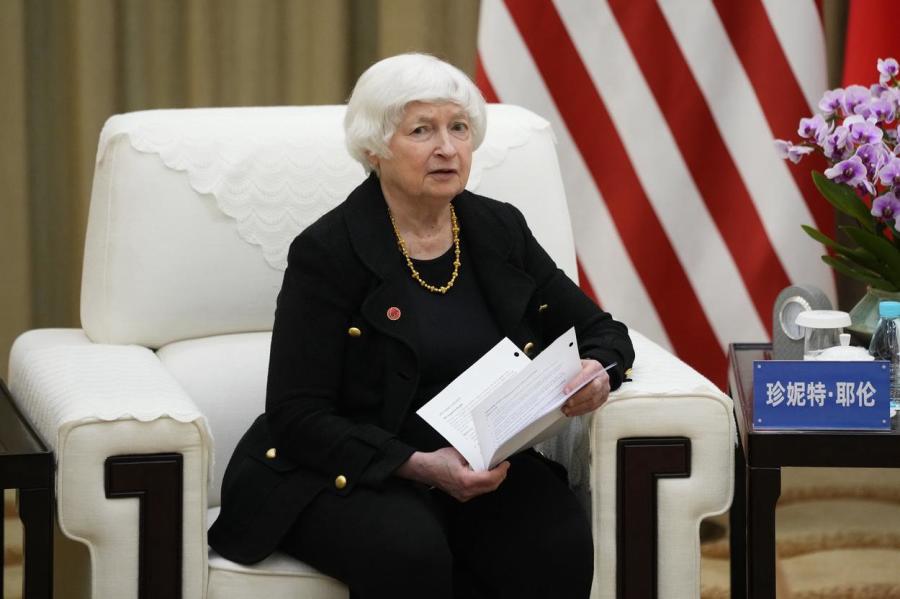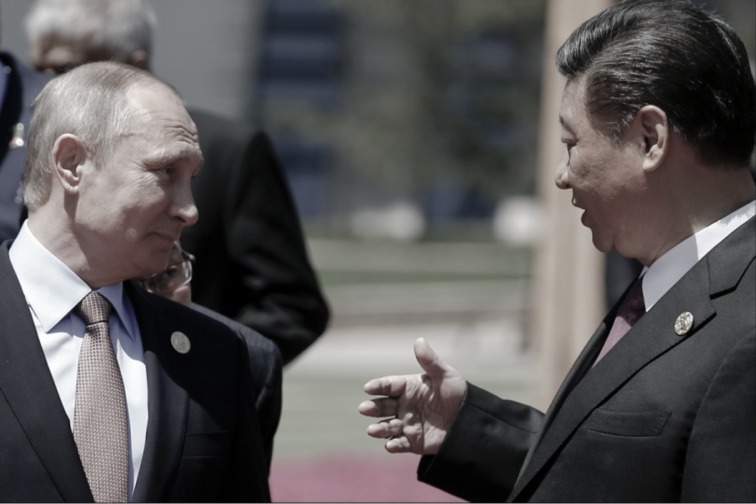U.S. Treasury Secretary Janet Yellen's Visit to China (Photo by Ken Ishii - Pool/Getty Images)
People News - As Trump prepares to retake the White House, he has signaled plans to impose higher tariffs on China. The Wall Street Journal recently reported that many U.S. companies are "changing course" and no longer backing China. This shift reflects the diminished allure of the Chinese market amid economic downturns. Many firms now regard China not as a "land of opportunity" but as a challenge they'd rather avoid, choosing instead to focus on the U.S. domestic market or explore opportunities elsewhere.
According to Radio Free Asia, Trump is set to be inaugurated on January 20 for his second term, bringing with it a new wave of U.S.-China trade tensions. A Wall Street Journal article published on Thursday (January 2) highlighted an important trend: major U.S. investors in China, including Apple and Nike, once fiercely opposed the trade war during Trump’s first term. Now, however, these corporations largely appear indifferent to the importance of U.S.-China relations. Even with Trump’s proposal to impose a 10% tariff on all goods imported from China, these companies are unlikely to oppose such measures to protect their investments in the country.
The report explains that U.S. businesses are increasingly unwilling to risk their reputations by supporting China. More importantly, China is no longer seen as a land of opportunity. As its economy falters—with GDP growth projections for 2025 struggling to meet the 5% benchmark—China’s market attractiveness has significantly diminished. Combined with the pressures of U.S.-China policy confrontations, competition from Chinese state-owned enterprises, and intellectual property infringement issues, doing business in China has become increasingly difficult. This has led many companies to exercise caution or withdraw investments altogether.
U.S. Companies Shift Investments to Other Regions
The report notes that while China was once a significant buyer of American products, U.S. exports to China in 2023 totaled $147.8 billion, marking a roughly 4% decline compared to the previous year. Additionally, the U.S.-China trade deficit reached $245 billion in the first 10 months of 2024. The American Chamber of Commerce in China, representing over 800 companies, has observed its members redirecting investments to other countries.
Particularly affected are U.S. technology giants, which have been hit hard by strict U.S. sanctions on high-tech exports to China and Beijing’s increased efforts to localize production. For instance: Apple has shifted production to Vietnam and India. IBM is closing its R&D department in China. General Motors plans to restructure its Chinese operations in Q4, with expected losses and expenses exceeding $5 billion. This includes closing factories and reducing vehicle models due to weak performance in the Chinese market.
Washington’s Bipartisan Hostility Toward China Renders Lobbying Ineffective
The report also quotes Kurt Tong, a former U.S. diplomat and managing partner at the consulting firm The Asia Group. Tong emphasized that growing bipartisan hostility toward China in Washington has rendered business lobbying efforts ineffective.
"If a company goes to Congress or the government and says, 'Our investments in China create revenue, jobs, or exports for the U.S.,' the counterargument is: 'You should have made those investments in the U.S.' End of conversation," Tong explained.











News magazine bootstrap themes!
I like this themes, fast loading and look profesional
Thank you Carlos!
You're welcome!
Please support me with give positive rating!
Yes Sure!